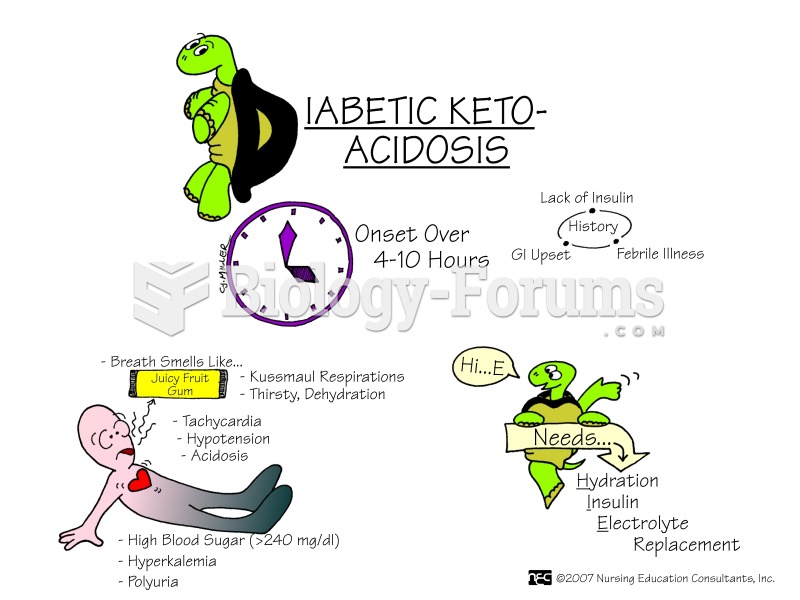|
|
|
Did you know?
The first monoclonal antibodies were made exclusively from mouse cells. Some are now fully human, which means they are likely to be safer and may be more effective than older monoclonal antibodies.
Did you know?
All adverse reactions are commonly charted in red ink in the patient's record and usually are noted on the front of the chart. Failure to follow correct documentation procedures may result in malpractice lawsuits.
Did you know?
It is difficult to obtain enough calcium without consuming milk or other dairy foods.
Did you know?
Blood is approximately twice as thick as water because of the cells and other components found in it.
Did you know?
The B-complex vitamins and vitamin C are not stored in the body and must be replaced each day.






